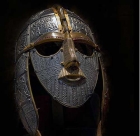General
Foundation Stage planning is a very different approach to Key Stage 1 or 2. Children in Nursery and Reception classes often have ‘continuous provision” - a variety of activities which children are free to move around among and choose for themselves. Sometimes activities will be provided where the teacher or classroom support works with all the children at different points during the week. Read more
Sort by:
Date (Newest first) | Title A-Z
Show:
All |
Articles |
Podcasts |
Multipage Articles
-

Artefacts and art facts: images of Sir Francis Drake
ArticleClick to view -

Sutton Hoo - Classroom archaeology in the digital age
ArticleClick to view -

A view from the KS1 classroom
ArticleClick to view -

Case Study: Classroom archaeology. Sutton Hoo, or the mystery of the empty grave
ArticleClick to view -

History and the early years: A view from the classroom
ArticleClick to view -

Teaching history to young children
ArticleClick to view -

In my view: We must support gifted historians from an early age
ArticleClick to view -

Creating a curriculum to help children in the early years understand the world in which the live: history and children in the early years
ArticleClick to view -

Oral history, a powerful tool or a double edged sword?
ArticleClick to view -

Creativity, Imagination, and Fun in Primary History
ArticleClick to view -

Teaching history through the use of story: Working with early years' practitioners
ArticleClick to view -

Promoting play in the classroom; children as curators in a classroom museum
ArticleClick to view -

Teaching history through nursery rhymes in the foundation stage
ArticleClick to view -

Issues relating to the youngest children
ArticleClick to view -

Any place for a database in the teaching and learning of history at KS1?
ArticleClick to view

